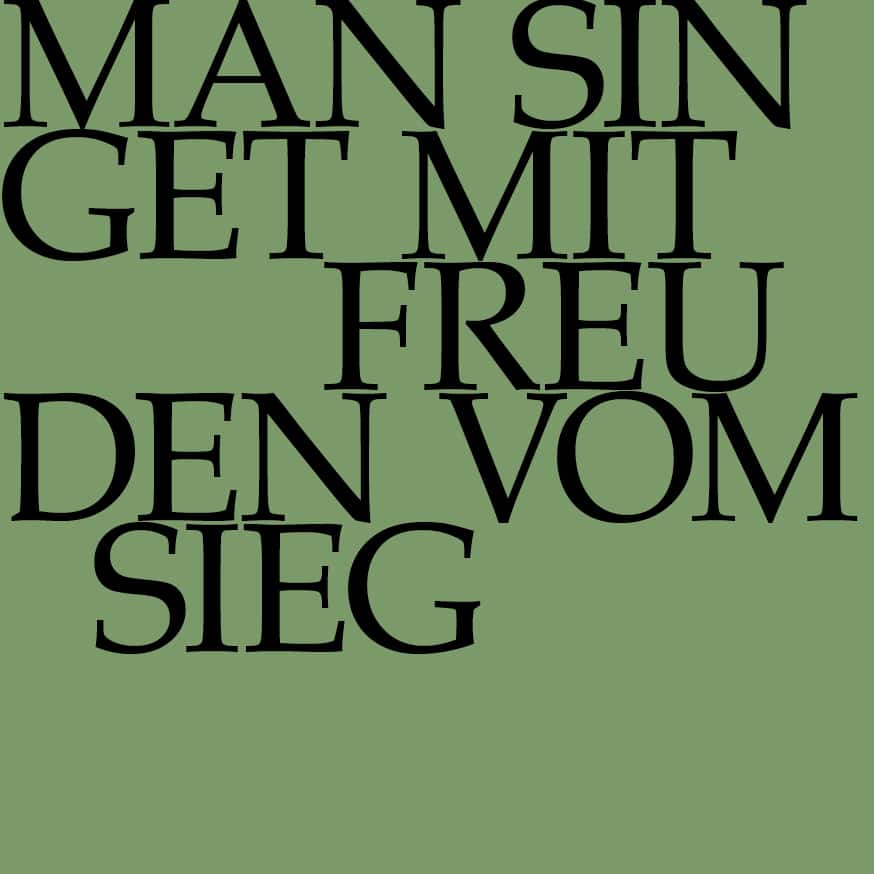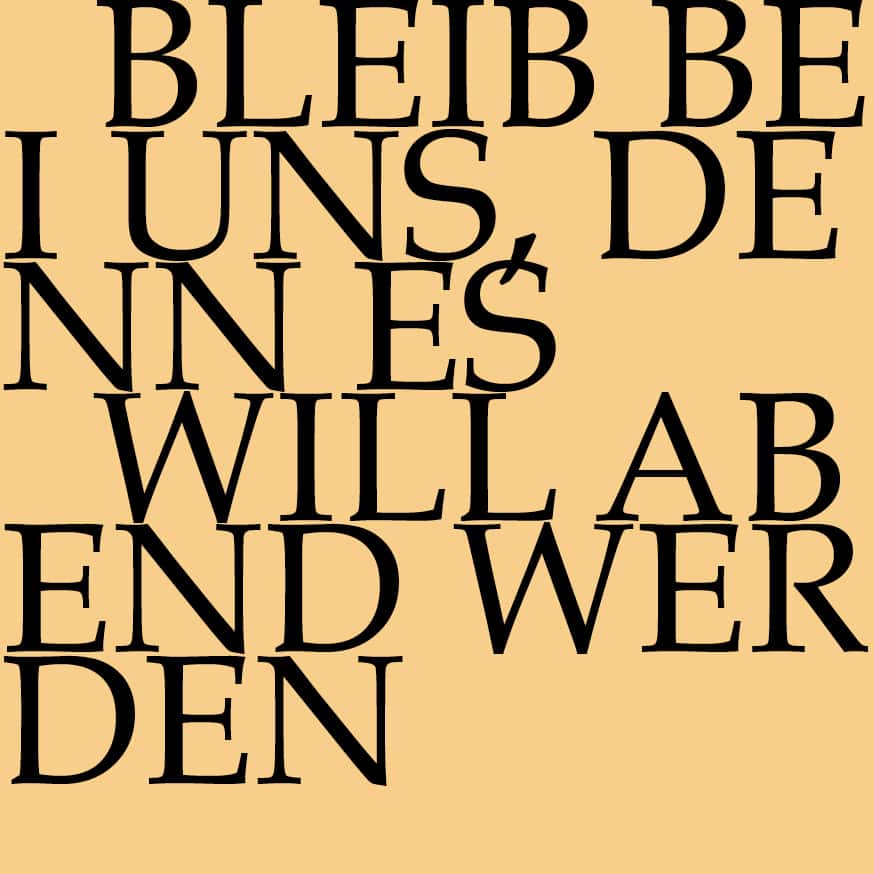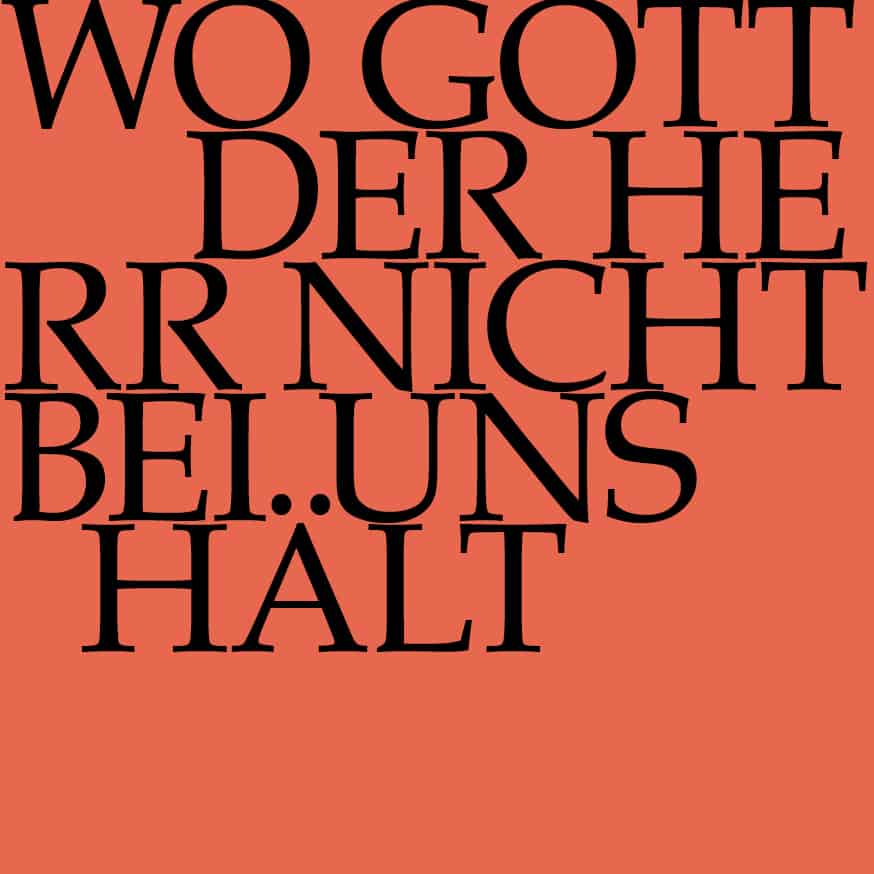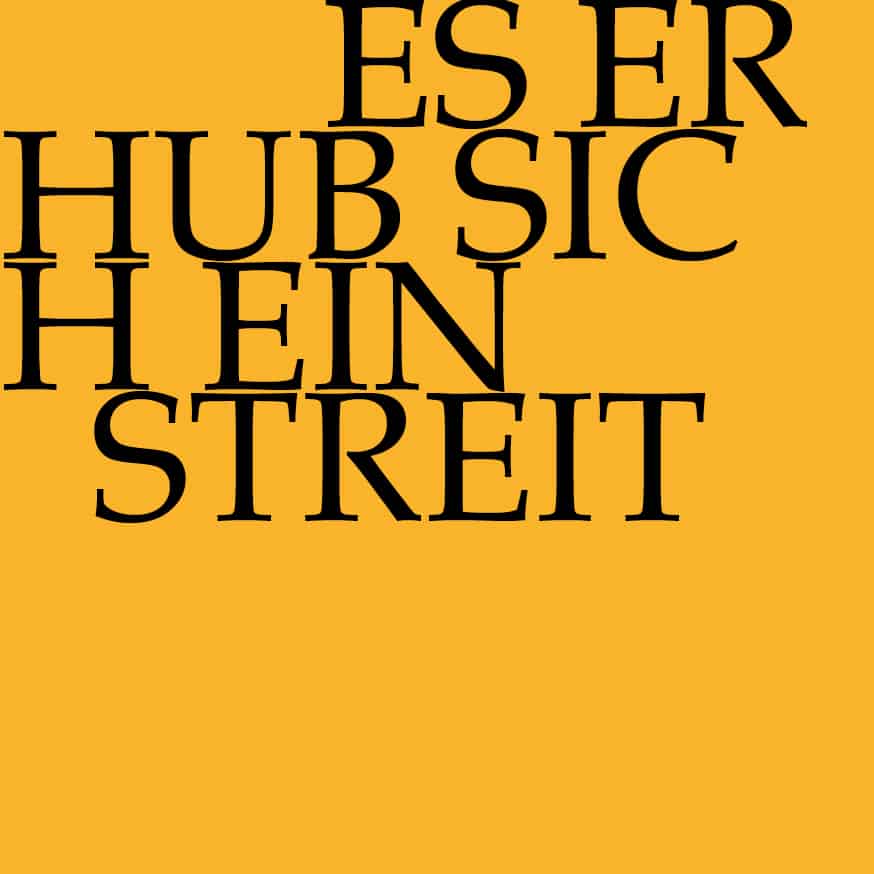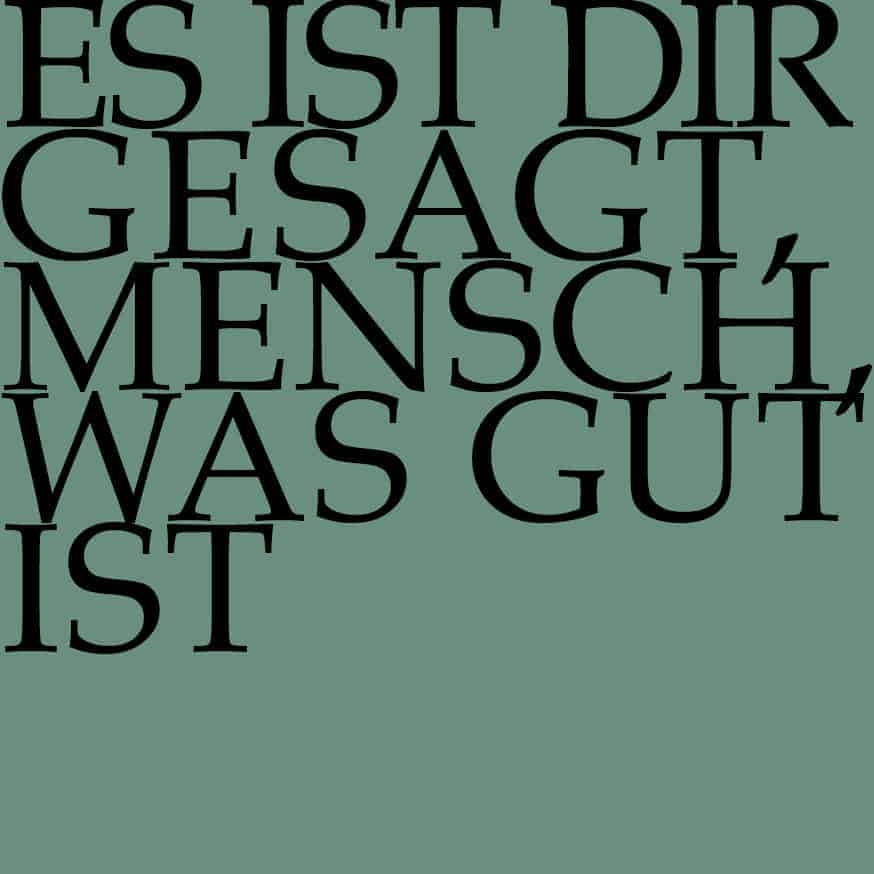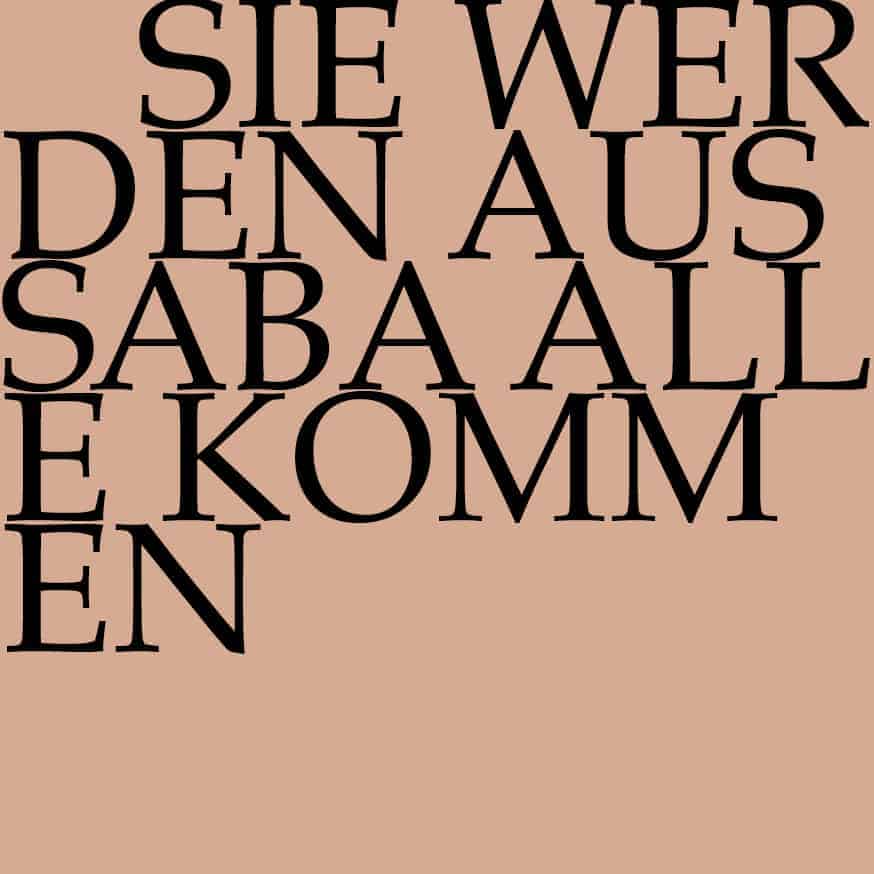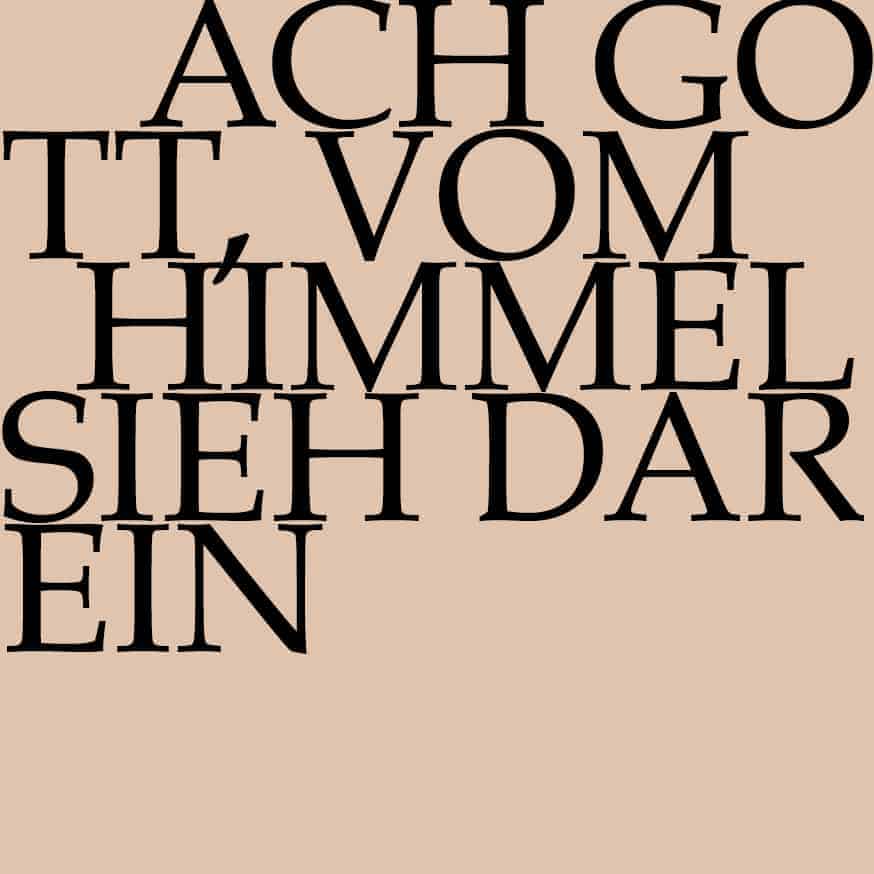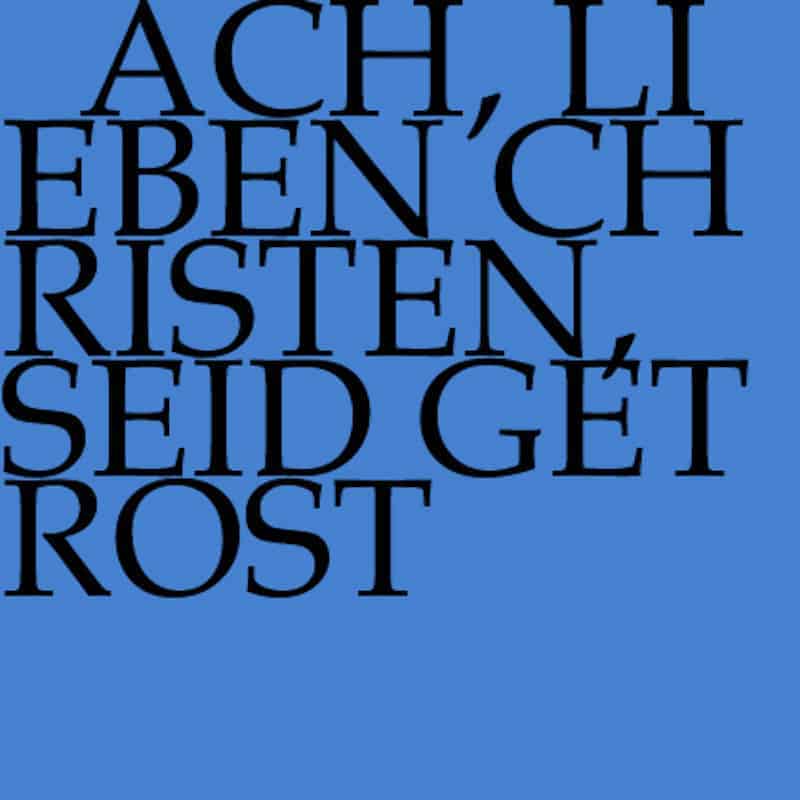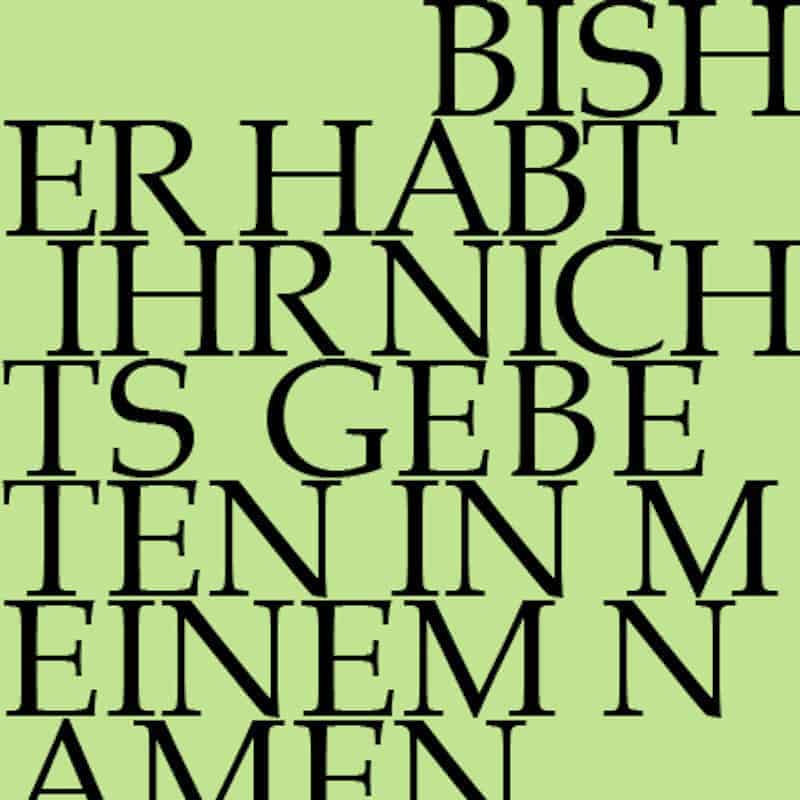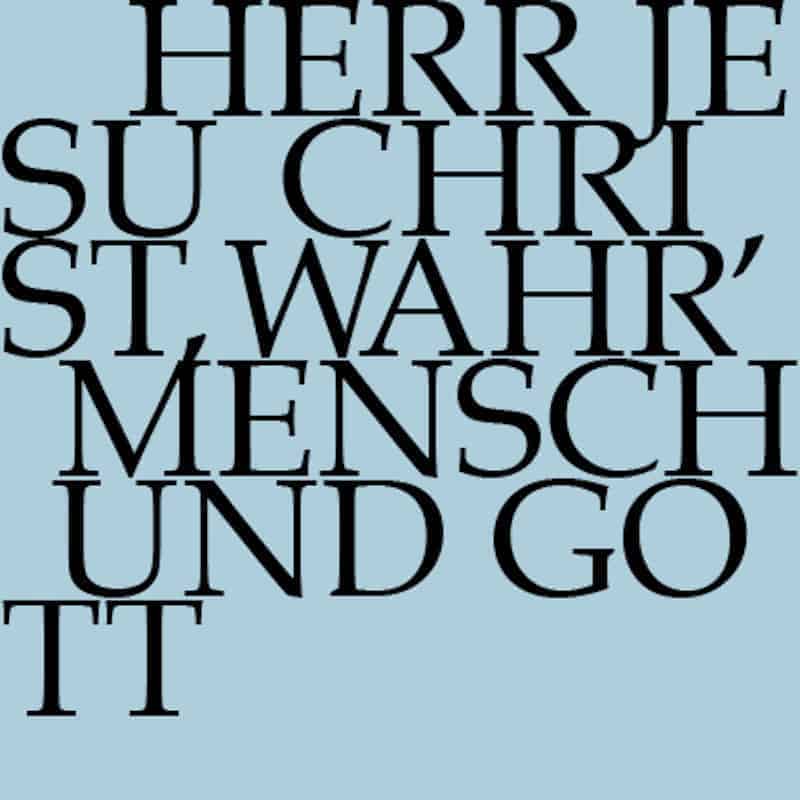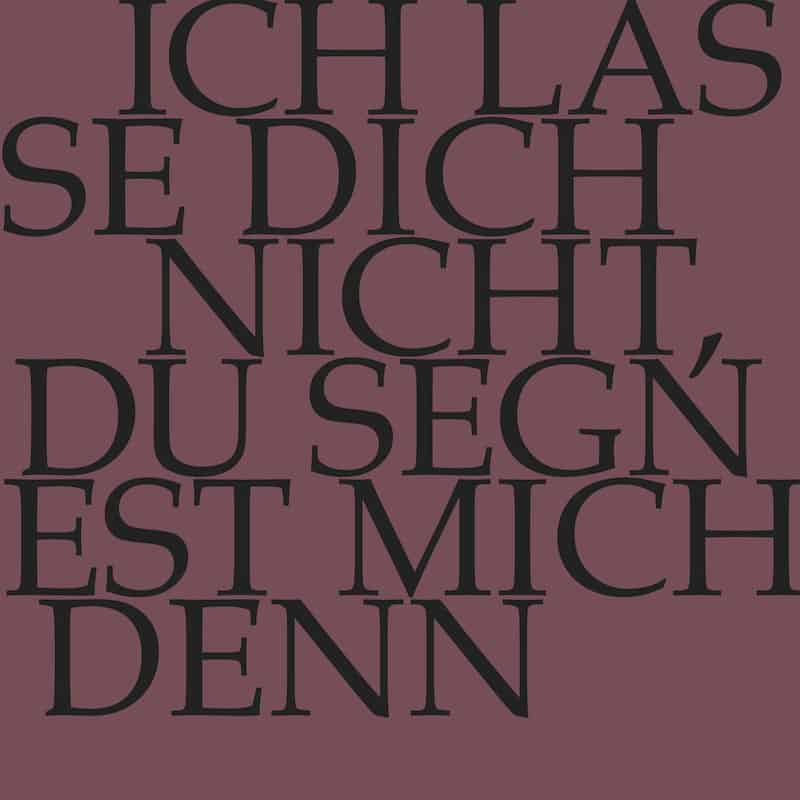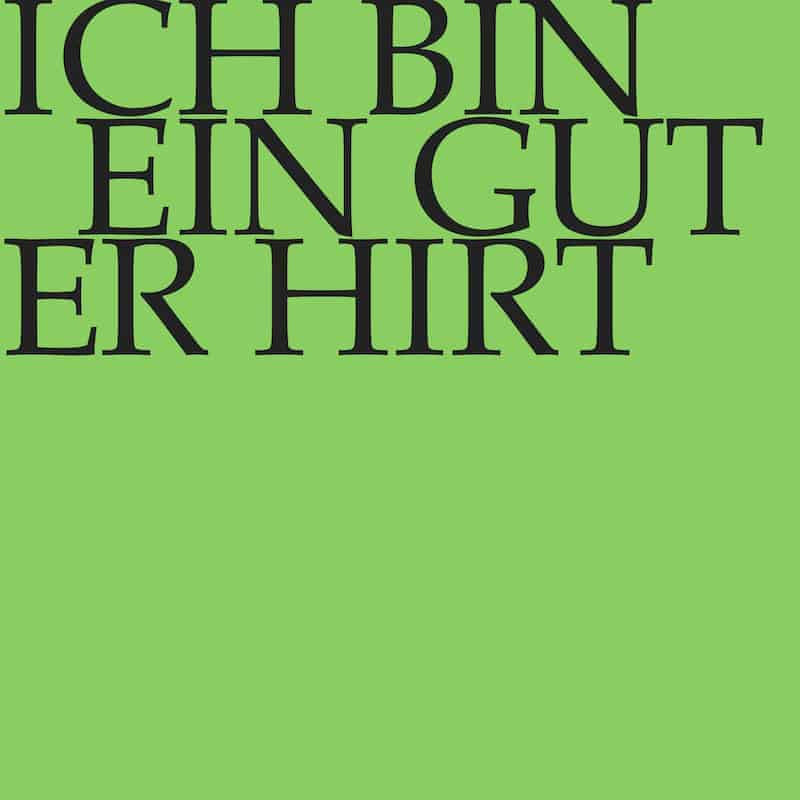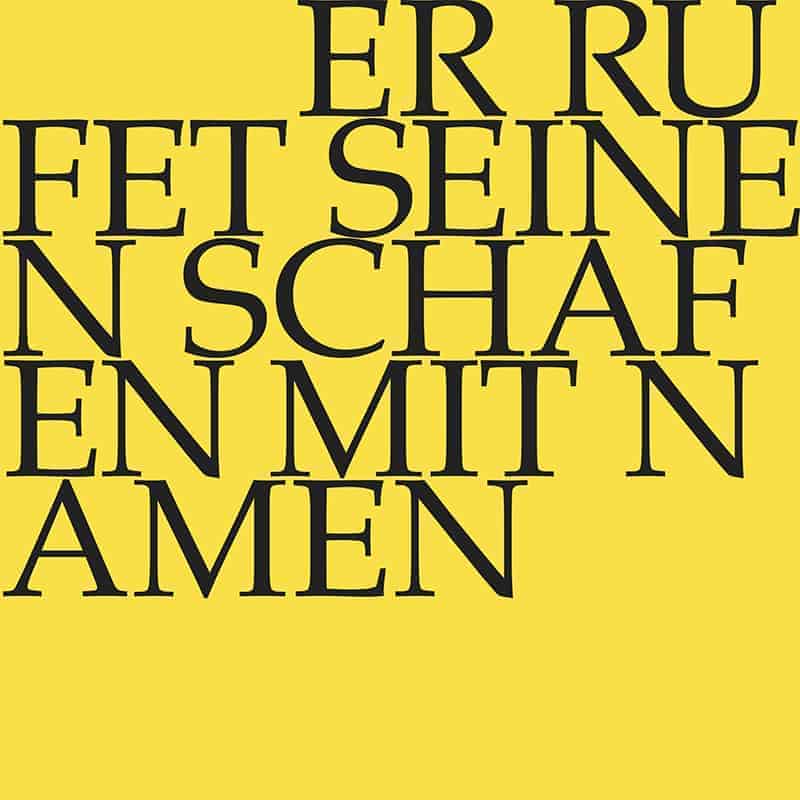(They sing now of triumph with joy) for soprano, alto, tenor and bass, vocal ensemble, trumpet I-III, timpani, oboe I-III, bassoon, strings and basso continuo
Archives
Bleib bei uns, denn es will Abend werden
(Bide with us, for it will soon be evening) for soprano, alto, tenor and bass, vocal ensemble, oboe I+II, oboe da caccia, strings and basso continuo
Wo Gott der Herr nicht bei uns hält
(Where God the Lord stands with us not) for alto, tenor and bass, vocal ensemble, horn, oboe I+II, strings and basso continuo
Es erhub sich ein Streit
(There arose a great strife) for soprano, alto, tenor and bass; vocal ensemble, oboe and oboe d’amore I+II, taille, trumpet I-III, timpani, strings and basso continuo
Es ist dir gesagt, Mensch, was gut ist
(It hath thee been told, Man, what is good) for alto, tenor and bass, vocal ensemble, transverse flute I+II, oboe I+II, strings and basso continuo
Sie werden aus Saba alle kommen
(They shall from Sheba all be coming) for the Feast of Epiphany, for tenor and bass, vocal ensemble, horn I+II, recorder I+II, oboe da caccia I+II, strings and basso continuo
Ach Gott, vom Himmel sieh darein
(Ah God, from heaven look on us) for alto, tenor and bass, vocal ensemble, oboe I+II, trombone I-III, cornett, strings and basso continuo
Ach, lieben Christen, seid getrost
(Ah, fellow Christians, be consoled) for alto, tenor and bass, vocal ensemble, oboe I+II, flute, corno, strings and basso continuo
Bisher habt ihr nichts gebeten in meinem Namen
(Till now have ye nought been asking) for soprano, alto, tenor and bass, oboe I+II, oboe da caccia, strings and basso continuo
Herr Jesu Christ, wahr’ Mensch und Gott
(Lord Jesus Christ, true man and God) for soprano, tenor and bass, vocal ensemble, flauto I+II, oboe I+II, trumpet, strings and basso continuo Cantata BWV 127 was composed for Estomihi in 1725. It is widely considered one of the highlights of Bach’s chorale cantata cycle, no doubt by virtue of its motivic density and its … Read More
Ich lasse dich nicht, du segnest mich denn
(I’ll not let thee go, thou must bless me first) for tenor and bass, vocal ensemble (closing chorale), transverse flute, oboe d’amore, strings and basso continuo
Ich bin ein guter Hirt
(I am a shepherd true) for soprano, alto, tenor and bass, oboe I+II, violoncello piccolo, strings and basso continuo
Er rufet seinen Schafen mit Namen
(He calleth his own sheep by name) for alto, tenor and bass, vocal ensemble, flauto dolce I-III, tromba I+II, violoncello piccolo, strings and basso continuo Composed for the Third Day of Pentecost in 1725, the cantata “Er rufet seinen Schafen mit Namen” (He calleth his own sheep by name) belongs to a cycle of works … Read More


